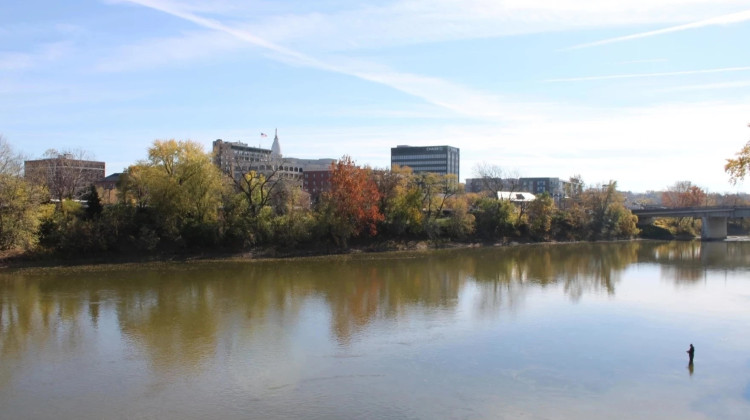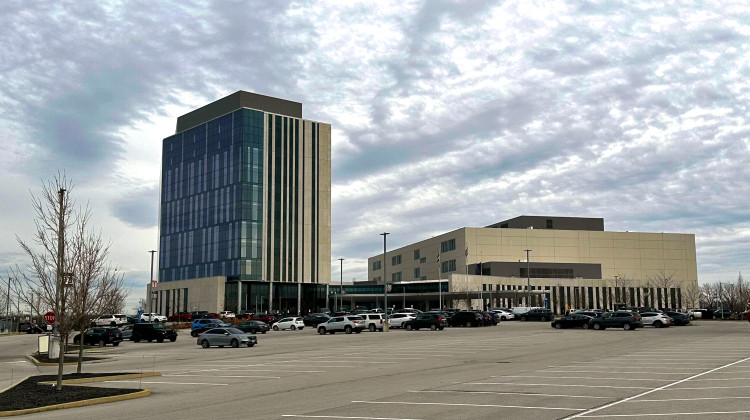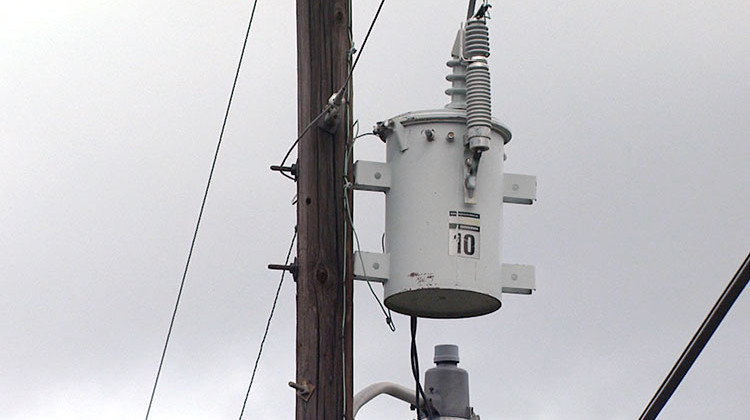
Tippecanoe County officials will be watching to see if the Indiana legislature moves on water legislation during the upcoming session
Benjamin Thorp / WBAAProtecting water rights has not been a hot-button issue in Indiana — until now.
A major state industrial development project has spurred a debate over water rights and whether local communities need protections for large withdrawals. The Limitless Expansion/Advanced Pace, or LEAP, could pipe 100 million gallons of water daily from an aquifer in Tippecanoe County to the industrial complex 50 miles away in Lebanon.
Residents, local governments, elected state officials, business leaders and gubernatorial candidates all have concerns or opinions on what should happen next.
Morning Edition’s Abriana Herron talked with WBAA reporter Benjamin Thorp about why Central Indiana residents will be watching the upcoming legislative session to see if lawmakers create potential safeguards.
To hear the conversation, click the stream player above.
Abriana Herron: So Ben, let’s start by talking about why residents and some lawmakers are pushing for water protections during this upcoming session.
Benjamin Thorp: Yeah, to explain that — first we need to talk about a large industrial complex the state is hoping to build in Lebanon. The state — through a quasi-governmental agency called the Indiana Economic Development Corporation — has been working to attract large industrial projects such as semiconductor chip manufacturers.
But those kinds of projects all require a lot of water.
Herron: Ok so — where is that water coming from?
Thorp: That’s basically the problem. Indiana as a state is very water-rich but Lebanon itself doesn’t have enough water to support the kinds of projects the state is hoping to attract. So the state has been looking elsewhere for potential sources of water. One of the places they landed on was Tippecanoe County.
The state is in the process of studying water resources there and has proposed a roughly 35-mile pipeline that would bring water from the area down to Lebanon. Some estimates have been that the state would be moving about one hundred million gallons of water every day.
Herron: Alright, so how have local residents responded to those potential plans?
Thorp: Well, as you can maybe imagine locals have not been happy.
Across the region, we’ve seen a flurry of cities pass resolutions opposing the pipeline project, citing a need to protect their water.
In Tippecanoe County commissioners passed an ordinance that would block large water withdrawals for the next nine months — basically trying to stop the pipeline from moving forward. They say they are hopeful that within the next nine months, the legislature can pass water protections that will at least ensure these kinds of massive withdrawals won’t come at the expense of local residents.
Herron: I guess maybe it’s worth asking — what kind of protections do exist?
Thorp: At this point, not much. There are no requirements on the books that these kinds of large withdrawals even need to be studied beforehand. In fact, some lawmakers have pointed out that until the withdrawals have been demonstrated to cause harm there’s basically nothing that can be done — and they say that’s already too late.
Herron: So can we expect some legislation out of this upcoming session?
Thorp: It’s not really clear. There are lawmakers representing Tippecanoe County who plan on introducing legislation and leadership say they are open to some of these bills but — it’s not clear yet what could pass.
Herron: What has been the impact of the local opposition? Anything?
Thorp: Well, Governor Holcomb met with Tippecanoe County officials last week and agreed not to move forward with the pipeline until a regional water study could be completed. He also said a pipeline would have to be approved by the legislature — and that won’t happen this session.
We’re also seeing a lot of increased scrutiny of the IEDC because of all of this. At a budget meeting recently lawmakers grilled the corporation about its large expenditures and raised concerns about the lack of oversight.
Herron: So I guess we’ll see what comes out of this next session.
Thorp: I think a lot of people will be watching this really closely.
Contact WBBA/WFYI reporter Ben Thorp at bthorp@wfyi.org.
 DONATE
DONATE








 Support WFYI. We can't do it without you.
Support WFYI. We can't do it without you.